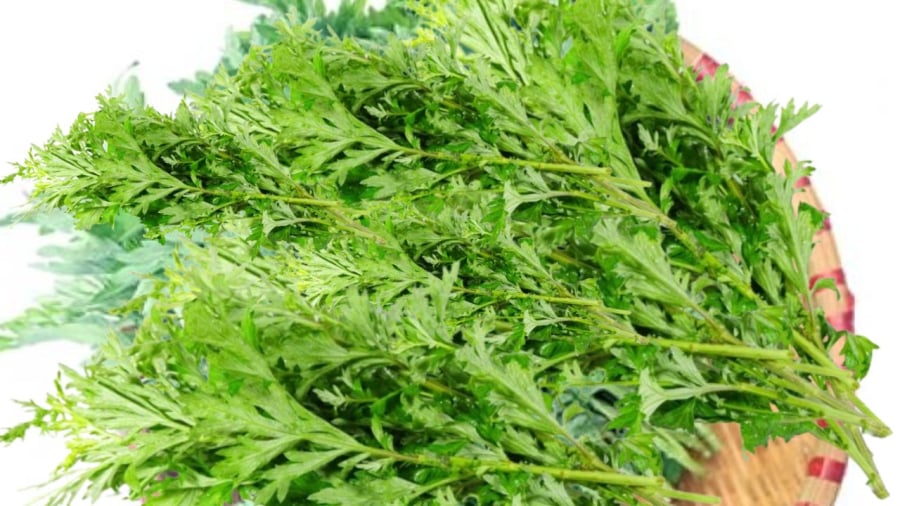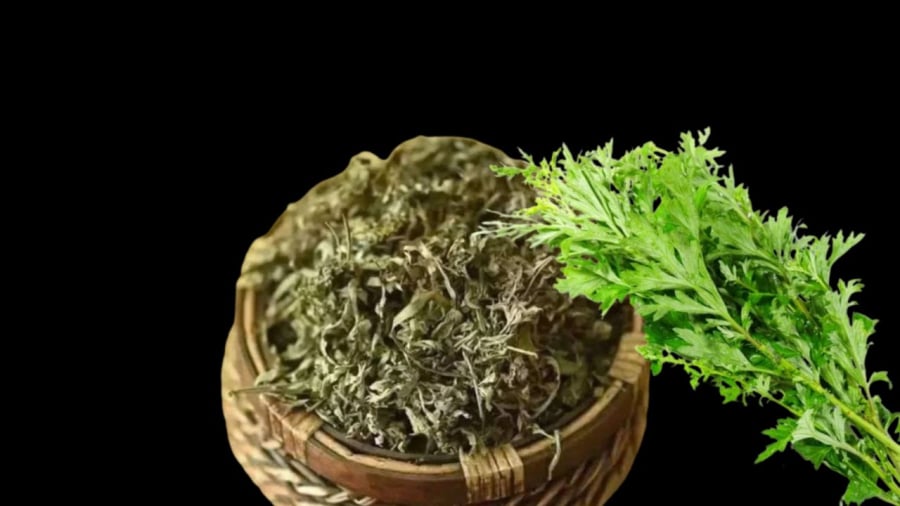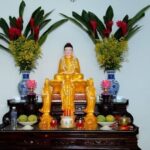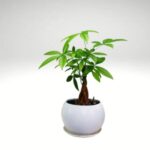The Significance of Growing Artemsia Vulgaris
Artemisia vulgaris, commonly known as mugwort, has a significant presence in cuisine and spiritual practices. In spiritual Feng Shui, mugwort is considered a divine plant with strong yang energy. Planting it around the house is believed to protect the residents, attract wealth, and bring positive energy and vibrant life force.
Mugwort is associated with powerful spiritual and supernatural properties. It is used in cooking, such as in soups, stewed with balut eggs, or paired with hot pot dishes. Additionally, it is employed in exorcisms and the creation of charms and amulets. The plant is also valued for its medicinal properties…

Mugwort – A Plant of Pure Yang Energy
Ancestral wisdom recommends not only growing mugwort but also hanging bundles of it near the entrance to ward off evil spirits. Dried mugwort is also placed in bags to ward off evil spirits and can be burned to create purifying smoke that banishes negative energies from the home.
How to Grow Mugwort and Its Use in Feng Shui
Mugwort has long been utilized in spiritual practices to bring good fortune and ward off evil.
Growing mugwort is straightforward due to its adaptability and ease of care. Simply cut a mature stem and plant it in the ground, providing ample sunlight and water during the initial stages of growth. Mugwort thrives in sunny conditions, requiring at least five hours of sunlight daily for optimal photosynthesis. Initially, water the plant twice a day, in the morning and at night. Subsequently, reduce watering as mugwort is drought-tolerant. Mugwort spreads by creeping along the ground, so excessive fertilizing is unnecessary.

Dried Mugwort for Spiritual Cleansing and Exorcism
To harness the Feng Shui benefits of mugwort, ancient practitioners recommended planting it around and in front of the house as a powerful method to ward off evil and attract good fortune for the household.
Dried mugwort can also be hung in bundles near the entrance or burned to create purifying smoke that banishes negative energies and treats illnesses. In ancient times, mugwort was used for divination and predicting the future. A decoction of mugwort can be used for mopping floors to dispel negative energies or for bathing to promote relaxation and wash away bad luck. Dried mugwort leaves can be stuffed into small pouches and carried or placed under pillows for improved sleep.
Planting mugwort near the entrance is also recommended to dispel negative energies and provide easy access to a valuable medicinal herb. Mugwort offers protection and peace of mind to homeowners, and its presence is believed to safeguard the health of the family.
Additionally, mugwort is beneficial for women and can be used as a natural mosquito repellent. Burning dried mugwort leaves or mopping the house with a mugwort decoction helps keep mosquitoes at bay.
For reference only





































